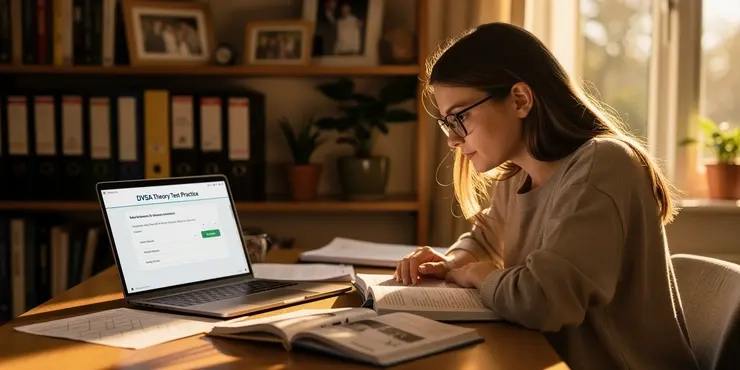
Find Help
More Items From Ergsy search
-
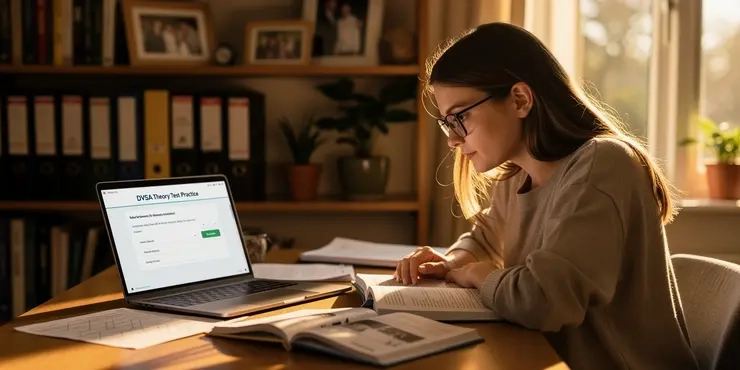
What should I do if I have hearing or visual impairments for the DVSA Theory Test?
Relevance: 100%
-
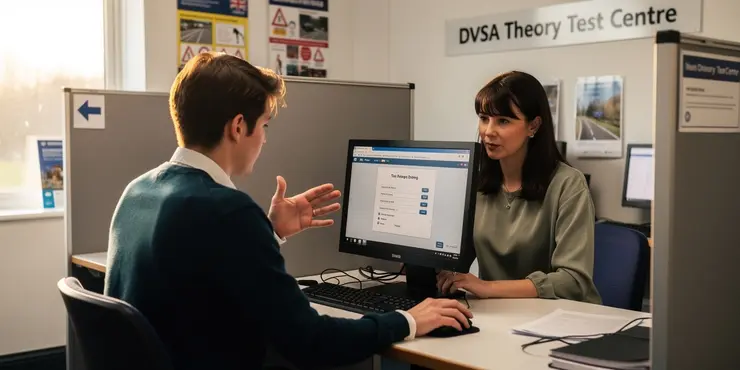
The DVSA Theory Test, BSL, and accessibility
Relevance: 63%
-
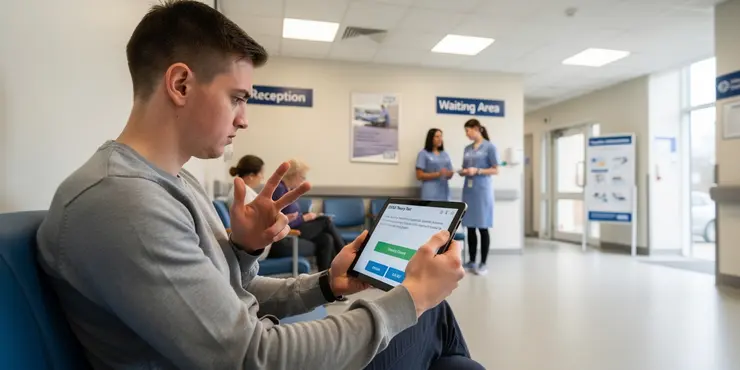
Is the DVSA Theory Test available in British Sign Language (BSL)?
Relevance: 58%
-
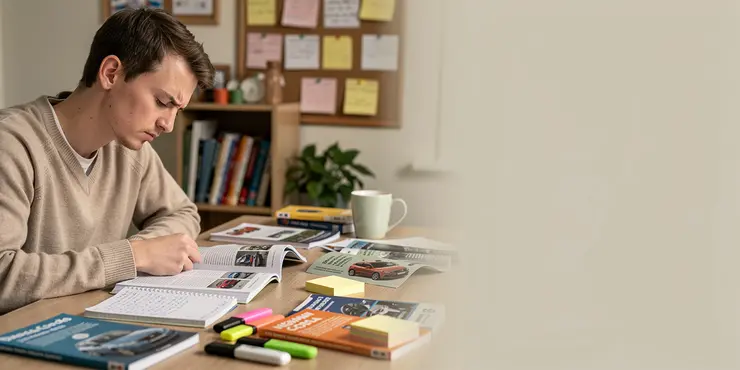
What is the DVSA Theory Test?
Relevance: 51%
-
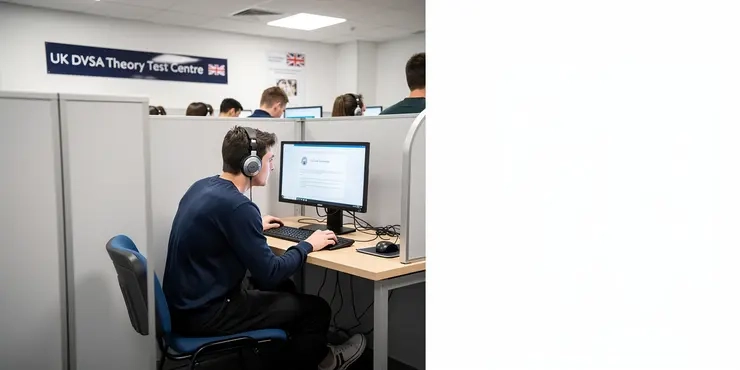
Can I use a voiceover for the DVSA Theory Test?
Relevance: 51%
-
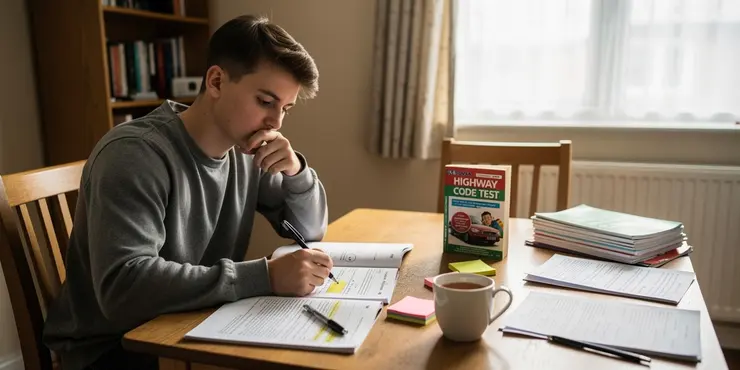
How many questions are there in the DVSA Theory Test?
Relevance: 47%
-
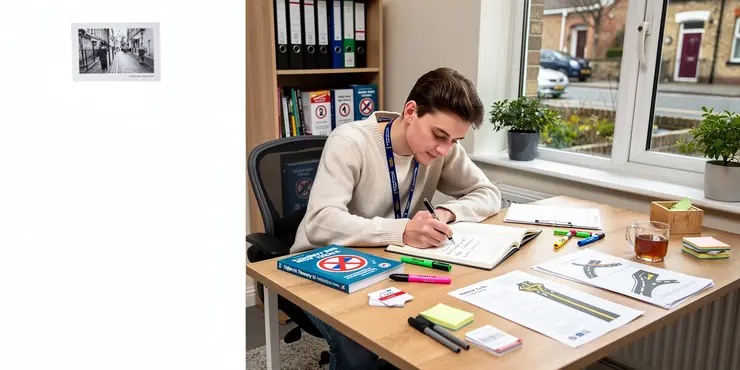
How can I prepare for the DVSA Theory Test?
Relevance: 47%
-

What is the pass mark for the DVSA Theory Test?
Relevance: 47%
-
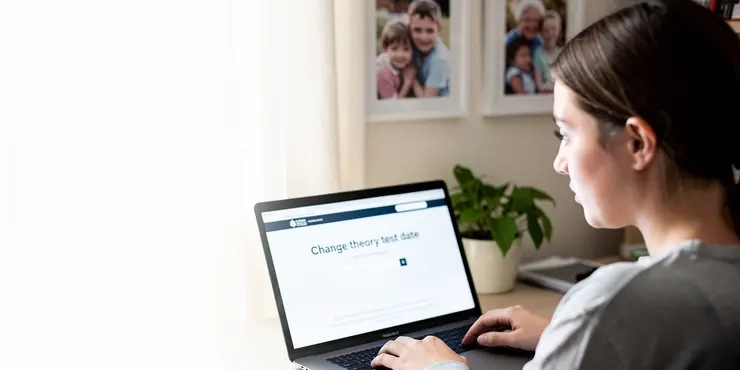
Can I change my DVSA Theory Test date?
Relevance: 46%
-
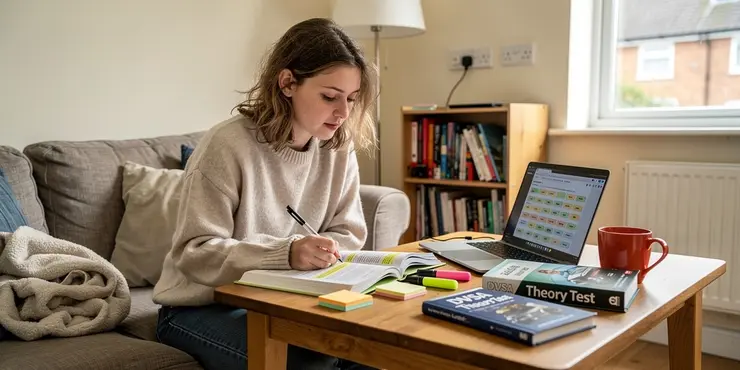
How much does it cost to take the DVSA Theory Test?
Relevance: 44%
-
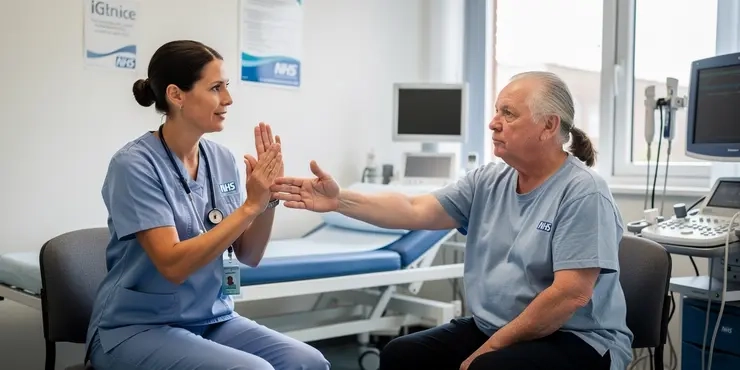
How to help deaf and hearing impaired patients and staff through Covid
Relevance: 35%
-

In what ways can vision impairments impact driving for those over 70?
Relevance: 34%
-

Can Baxdrostat be used in patients with renal impairment?
Relevance: 34%
-
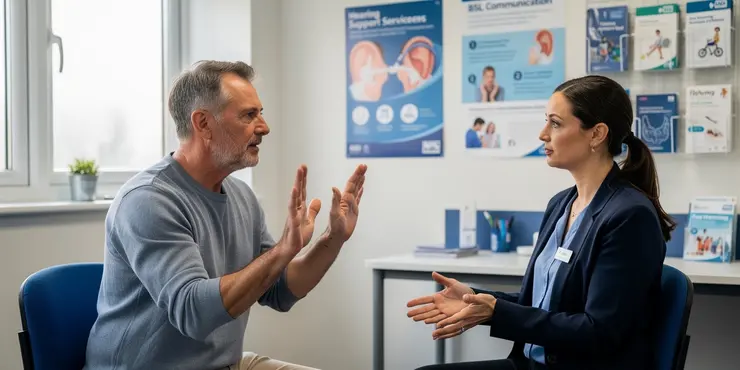
How can I take the DVSA Theory Test in BSL?
Relevance: 34%
-
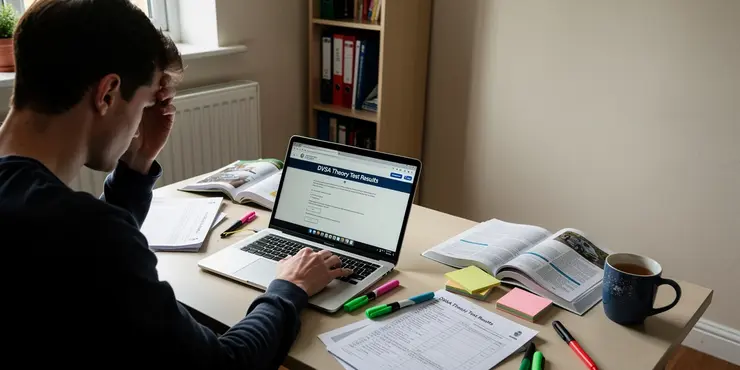
What happens if I fail the DVSA Theory Test?
Relevance: 34%
-
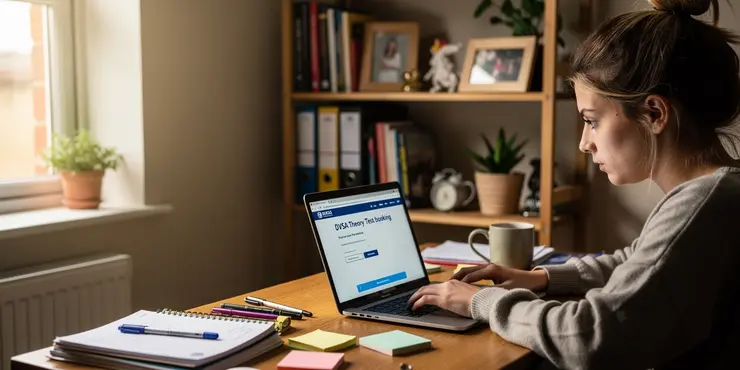
Where can I book my DVSA Theory Test?
Relevance: 33%
-
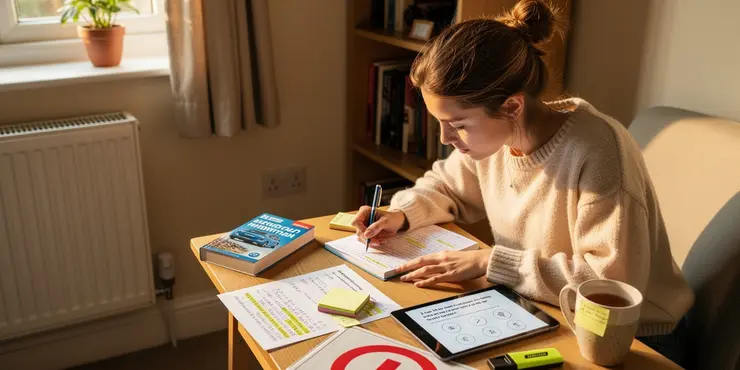
How long is the DVSA Theory Test certificate valid?
Relevance: 32%
-
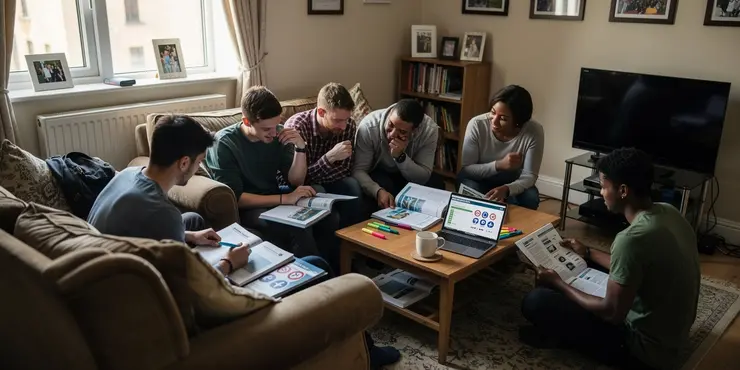
Are there any additional support options available for the DVSA Theory Test?
Relevance: 32%
-
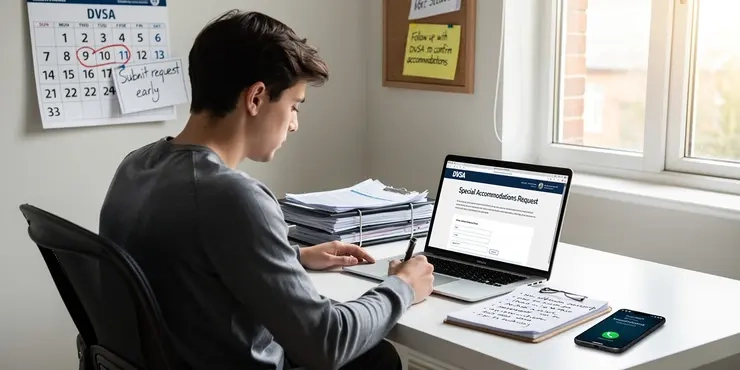
How do I request special accommodations for the DVSA Theory Test?
Relevance: 32%
-

Are there specific hearing issues that pose a risk to older drivers?
Relevance: 26%
-
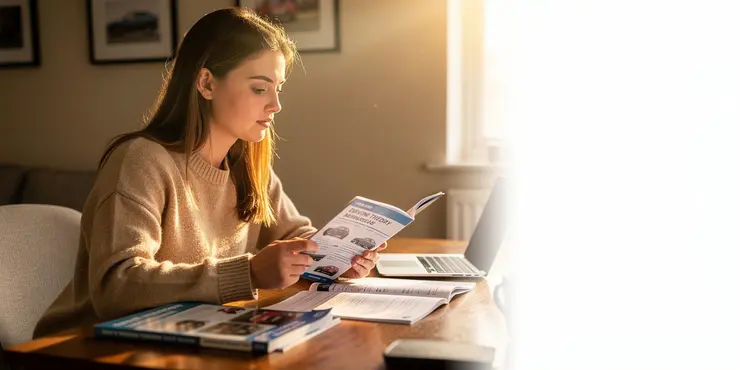
What identification is required for the theory test?
Relevance: 25%
-
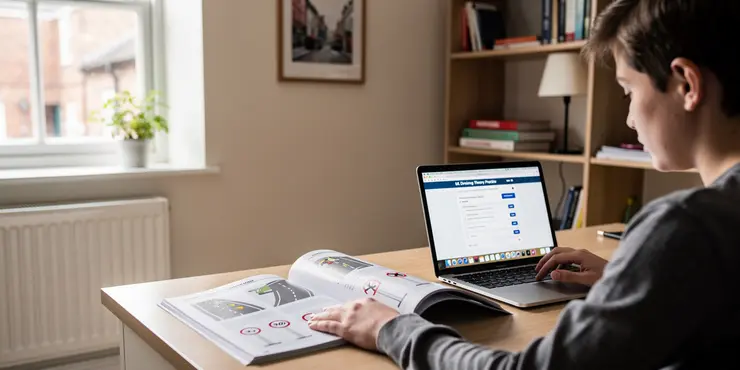
What is the pass mark for the Hazard Perception Test?
Relevance: 20%
-
Can tinnitus be a sign of hearing damage?
Relevance: 20%
-
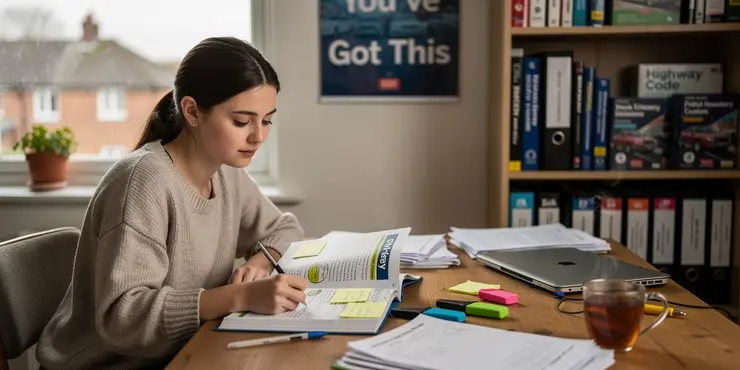
Can I take notes during the DVSA Theory Test?
Relevance: 20%
-
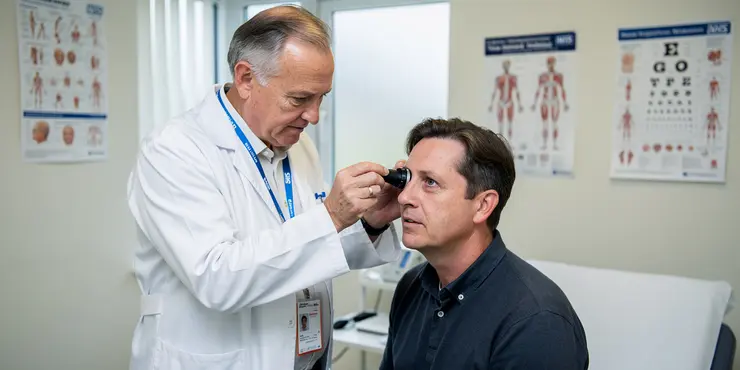
What types of visual disturbances are associated with methanol poisoning?
Relevance: 19%
-
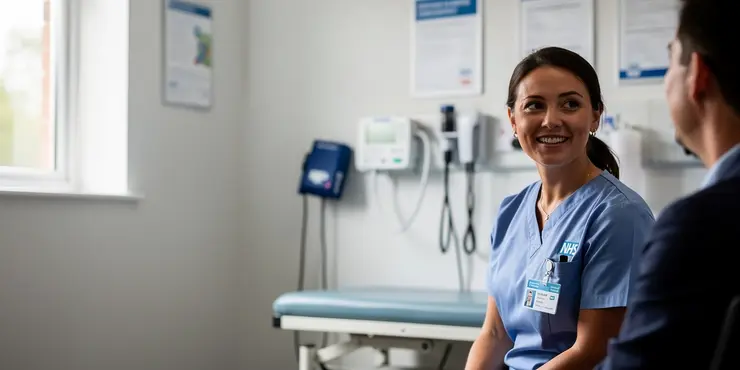
How does the Hazard Perception Test work?
Relevance: 18%
-
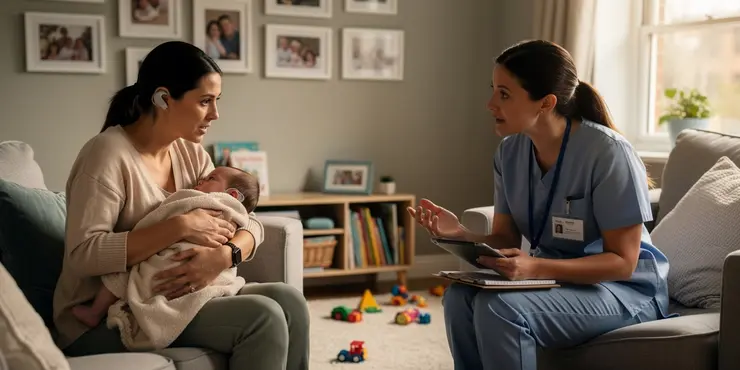
My baby has a hearing loss - what next?
Relevance: 18%
-

How to remove your hearing aid
Relevance: 18%
-
Is tinnitus linked to hearing loss?
Relevance: 18%
-

How do I prepare for a tribunal hearing?
Relevance: 16%
-
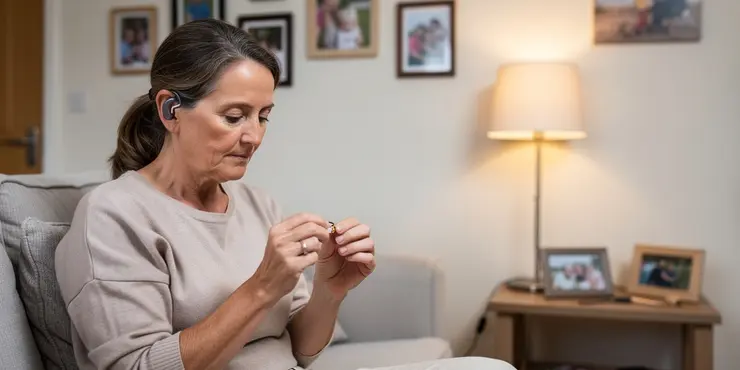
How to change your hearing aid battery
Relevance: 16%
-
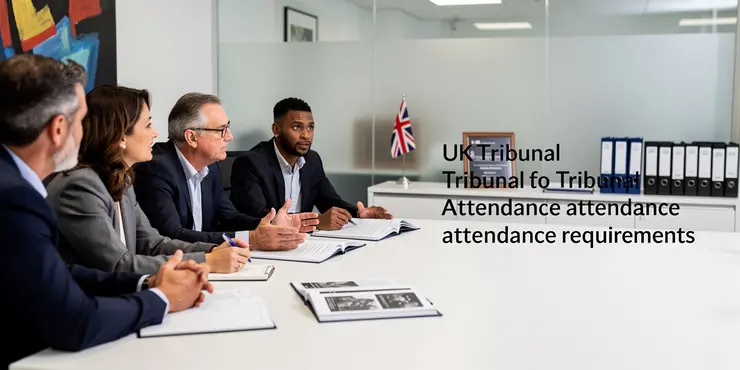
Will attending a tribunal hearing be mandatory?
Relevance: 16%
-

What happens during a tribunal hearing?
Relevance: 16%
-
What are the common risks associated with driving after the age of 70?
Relevance: 16%
-
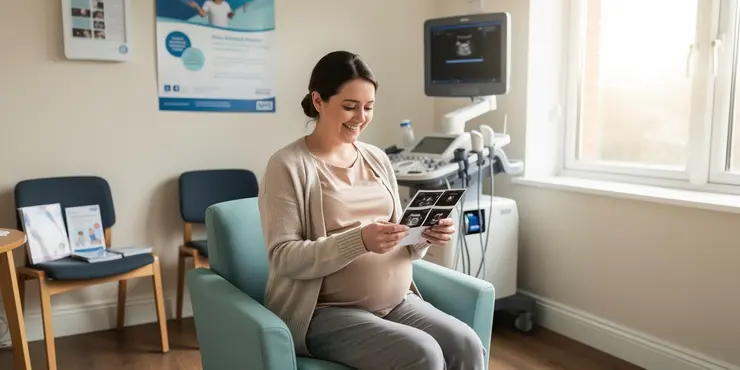
Screening tests for you and your baby | NHS
Relevance: 15%
-

What are the risks of driving after 70?
Relevance: 15%
-
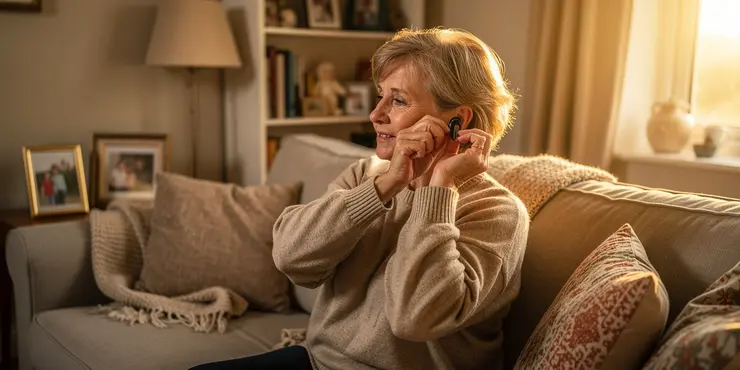
How to insert your hearing aid
Relevance: 15%
-

How to clean your hearing aid
Relevance: 15%
-

How to turn your hearing aids on and off
Relevance: 15%
-

Showing you around your hearing aid
Relevance: 15%
Understanding Your Needs
If you have hearing or visual impairments and are preparing for the Driver and Vehicle Standards Agency (DVSA) Theory Test in the UK, it's important to know the accommodations available to help you succeed. The DVSA provides support to candidates with disabilities to ensure fair and equal access to the test.
Visual Impairments: Available Support
If you have a visual impairment, several provisions can aid you during the theory test. You can request extra time to complete the test, use of a screen magnifier, or a reader assistant. It’s essential to inform the DVSA of your needs in advance to ensure these accommodations are in place on the day of your test.
You may also benefit from voiceover support, where questions are read aloud through headphones. The DVSA offers voiceovers in multiple languages, but it's crucial to specify this requirement when booking your test. Additionally, candidates requiring a Braille or large-print version of the test should make these arrangements prior to test day.
Hearing Impairments: Support Options
For those with hearing impairments, the DVSA provides options such as British Sign Language (BSL) interpretation. You can request a BSL video to accompany your test, ensuring you understand the questions and instructions. It’s advisable to mention this requirement when booking your test to avoid any inconvenience on the day.
Special arrangements can also include lip speakers or speech-to-text reporters if needed. These services must be requested well in advance, and you may bring a registered professional with you to provide the necessary support during the test.
Booking the Test with Accommodations
To book your theory test with the necessary accommodations, contact the DVSA customer support. Be prepared to provide documentation that confirms your impairment and outlines the specific support you need. Booking should be done via phone or online, and it’s advised to apply early to ensure all arrangements are in place.
Remember to keep a confirmation of all bookings and arrangements made, which you may need to present upon arrival at the test centre.
Prepare and Practice
Preparation is key to successfully passing the DVSA Theory Test. Utilize resources like official practice materials available in audio formats or those tailored to your specific needs. Taking mock tests simulating your test day conditions can also be very beneficial.
Organize a study schedule that allows ample time for each section of the test, and make use of guidance and support groups specializing in assisting visually or hearing-impaired individuals.
Final Considerations
On the day of your test, arrive early to ensure all technology and accommodations are correctly set up. Do not hesitate to communicate with the test centre staff about any issues or adjustments needed. By preparing adequately and utilizing available support, you can effectively navigate the DVSA Theory Test process with confidence.
Understanding Your Needs
If you have trouble hearing or seeing and you want to take the DVSA Theory Test in the UK, help is available. The DVSA gives support to make sure everyone can take the test fairly.
Help for Visual Impairments
If you have trouble seeing, there are ways to help you during the test. You can ask for more time, use a screen magnifier, or have someone read the questions to you. Tell the DVSA what you need before your test day.
You can also have the questions read aloud through headphones. They have voiceovers in different languages. Let them know when you book your test if you need this. If you need a Braille or large-print test, ask for this before the test day.
Help for Hearing Impairments
If you have trouble hearing, the DVSA can help with a British Sign Language (BSL) video for your test. Ask for this when you book your test.
If you need, you can also have lip speakers or people who type words for you. Ask for these services early, and you can bring a professional to help you during the test.
Booking the Test with Support
To book your test with the support you need, contact the DVSA customer support. You will need to show proof of your hearing or seeing difficulties. You can book by phone or online. Book early to make sure everything is ready for your test day.
Keep a note of everything you have arranged, as you might need it when you get to the test centre.
Prepare and Practice
To do well on the test, practice is important. Use practice materials in audio or formats that suit you. Practice with mock tests to get comfortable with the test setting.
Make a study plan and take your time with each part of the test. Join support groups that help people who have trouble hearing or seeing.
Final Considerations
On your test day, get to the test centre early to make sure all the help you need is ready. Talk to the staff if something is not right. With good preparation and support, you can take the DVSA Theory Test confidently.
Frequently Asked Questions
What accommodations are available for individuals with hearing impairments taking the DVSA Theory Test?
The DVSA offers various accommodations such as a British Sign Language (BSL) interpreter or extra time during the test.
How do I request a British Sign Language interpreter for the DVSA Theory Test?
You can request a BSL interpreter by contacting the DVSA customer support when booking your theory test.
What is the process to request extra time for the DVSA Theory Test if I have a hearing impairment?
When booking your test, inform the DVSA about your hearing impairment and request extra time. Provide any necessary medical documentation if required.
What visual aids are provided during the DVSA Theory Test for those with visual impairments?
The DVSA provides enlarged versions of the test and other aids as necessary. You should inform them of your needs when booking.
Can I take the DVSA Theory Test with an audio option if I have a visual impairment?
Yes, the DVSA provides an audio version of the test for those with visual impairments. You should request this option when booking.
How can I ensure my accommodations for hearing or visual impairments are recognized on test day?
Contact the DVSA ahead of your test to confirm your accommodations. Bring any confirmation documents with you on test day.
Are there any practice tests available in British Sign Language for the DVSA Theory Test?
Yes, BSL practice versions of the DVSA theory test are often available through online resources.
How do I inform the DVSA about my specific requirements for the Theory Test?
You should inform the DVSA of your requirements when you book the test either online or via phone. Ensure you provide any necessary documentation.
Can I bring my own interpreter to the DVSA Theory Test?
Typically, the DVSA provides their own qualified BSL interpreters. Contact them in advance to discuss your needs.
What if I require both hearing and visual impairment accommodations?
You should specify all your needs when booking the test, and the DVSA will make the necessary arrangements to accommodate both impairments.
Is there an additional cost for special accommodations during the DVSA Theory Test?
There is generally no extra cost for accommodations related to hearing or visual impairments; however, it's best to confirm with the DVSA.
How can I practice for the DVSA Theory Test if I have visual impairments?
There are various resources available such as audio books and online materials that can help you prepare for the Theory Test.
Will the DVSA Theory Test center have accessible facilities for individuals with impairments?
Yes, the majority of theory test centers are equipped with accessible facilities. Verify with your chosen center in advance.
How early should I book my DVSA Theory Test to ensure my accommodations are met?
It is advisable to book your test as early as possible to ensure sufficient time for the DVSA to arrange the necessary accommodations.
Do I need to provide medical evidence of my impairment to the DVSA?
In some cases, you may be required to provide evidence of your impairment, such as a letter from a medical professional.
Can I use text-to-speech software during the DVSA Theory Test?
You must check with the DVSA if the center provides any text-to-speech software or if it can be used during the test.
What should I do if I have concerns about accessibility on the test day?
Contact the DVSA immediately and discuss your concerns. Ensure you have all confirmations of your accommodations with you.
Can I reschedule my test if accommodations are not properly arranged?
If accommodations are not satisfactory, you should contact the DVSA to discuss rescheduling options.
Are there specific resources for understanding the highway code for those with visual impairments?
Yes, many resources, including audio versions of the highway code, are available to aid those with visual impairments.
Where can I find additional support for booking a DVSA Theory Test if I have impairments?
You can contact organizations that specialize in supporting individuals with disabilities for additional guidance.
What help is there for people who can't hear well when taking the DVSA Theory Test?
If you have trouble hearing, there are good ways to help you with the DVSA Theory Test. Here are some things you can ask for:
- Sign Language: You can ask for a sign language interpreter.
- Extra Time: You can ask for more time to take the test.
- Written Instructions: You can get written instructions to help you understand the test.
If you need help, you should tell the test center before your test day. They can make sure you get the help you need.
The DVSA can help you with your test. They can give you a person who uses British Sign Language (BSL) to help you. You can also get more time to finish the test.
How can I ask for a British Sign Language helper for the DVSA Theory Test?
When you book your driving theory test, you can ask for a helper who uses British Sign Language (BSL). Just call or email the DVSA customer support team. They will help you.
How can I ask for more time on the DVSA Theory Test if I have trouble hearing?
When you book your test, tell the DVSA if you have trouble hearing. Ask for more time for your test. If they ask, show them a doctor's note.
What helps can you get if you have trouble seeing during the DVSA Theory Test?
If you find it hard to see, there are some tools to help you during the DVSA Theory Test.
Here are some things that can help:
- You can ask for bigger writing on the screen.
- A voice can read the questions and answers to you.
- You might be able to use special glasses or other devices.
Tell the test people before your test if you need help seeing.
The DVSA can give you bigger test papers if you need them. They can also help in other ways. You should tell them what you need when you book your test.
Can I listen to the DVSA Theory Test if I find it hard to see?
Yes, you can! If it is hard for you to read because you cannot see well, you can listen to the test. This means the questions will be read out loud to you.
Yes, there is a voice version of the test for people who can't see well. Ask for this when you book the test.
How can I make sure I get the help I need on test day if I have trouble hearing or seeing?
Before your test, talk to the DVSA to make sure your needs are met. Bring any papers they give you on the test day.
Can I find practice tests in British Sign Language for the DVSA Theory Test?
Yes, you can find practice tests in British Sign Language (BSL) to help you with the DVSA Theory Test.
These tests use signs to explain the questions and answers. This can make it easier to understand if you use BSL.
Here are some tips to help you:
- Look for videos with BSL practice questions.
- Use a BSL dictionary to learn any new signs.
- Ask someone who knows BSL to help you study.
Yes, you can find BSL (British Sign Language) versions of the DVSA theory test on the internet. You can use them to practice.
How do I tell the DVSA about my special needs for the Theory Test?
If you need extra help for your Theory Test, you can tell the DVSA. DVSA stands for Driver and Vehicle Standards Agency. Here is what you can do:
1. Call the DVSA: You can use a phone to call them and tell them what you need.
2. Use the DVSA website: The DVSA has a website where you can tell them online.
3. Ask someone to help you: If it's hard to tell the DVSA by yourself, ask a family member or a friend to help you.
It's important to tell the DVSA as soon as you can. This way, they can make sure you get the help you need for your test. They want to make sure everyone can take the test in a way that is fair and helpful.
Tell the DVSA what help you need when you book the test. You can do this online or by phone. Make sure you give them any papers they need.
Can I bring my own helper to the DVSA Theory Test?
Are you going to take the DVSA Theory Test?
If you need help with the language, you might want to bring your own helper.
The helper can explain questions to you if you do not understand them.
Here are some things to do:
- Ask the test center if you can bring a helper.
- Make sure your helper speaks the language well.
- Check if there are rules about bringing a helper.
These tips can help:
- Practice questions with someone before the test.
- Talk to people who have taken the test before.
- Use practice apps or websites to get ready.
The people who run driving tests can give you a helper. The helper can use sign language. Talk to them before your test to tell them what you need.
What if I need help because I can't hear or see well?
If you have trouble hearing and seeing, you can get help to make things easier.
Here are some ways we can help:
- Devices that make sounds louder for you.
- Text in big letters, so it is easier to read.
- People who can help talk or guide you.
- Screens that show words when people talk.
You can ask someone you trust, like a family member or teacher, to help you get the right tools.
When you book your test, say everything you need. The DVSA will help make things easier for you.
Do you have to pay more for extra help in the DVSA Theory Test?
Usually, there is no extra cost for help if you have trouble hearing or seeing. But, it's a good idea to check with the DVSA to make sure.
How can I get ready for the DVSA Theory Test if I have trouble seeing?
If you have trouble seeing, you can still study and get ready for your DVSA Theory Test. Here are some helpful tips:
- Use audio books: Listen to the study materials instead of reading them.
- Large print: Find books or papers with big letters that are easy to read.
- Screen readers: Use a special tool that reads the words on your computer screen out loud.
- Practice tests: Try sample tests online with sound support to get used to the questions.
- Ask for help: A family member or a friend can help you practice by reading questions to you.
These tools can make studying easier and help you feel ready for the test.
There are many helpful things like listening to books and looking at things online. These can help you get ready for the Theory Test.
Does the DVSA Theory Test place have things to help people with disabilities?
If you have a disability, there are tools and help that might be useful for you:
- Check if the building has ramps or lifts for wheelchair access.
- Ask if they have hearing loops if you use a hearing aid.
- See if they have easy-read information or support staff to help.
Most places where you take the theory test have things to help people who need it. Check with the place you choose before you go.
When should I book my DVSA Theory Test to get the help I need?
It's a good idea to book your test early. This gives the DVSA enough time to make any special arrangements you might need.
Do I need to show a doctor's note about my disability to the DVSA?
Sometimes, you might need to show proof that you have a disability. You can do this with a letter from your doctor.
Can I use text-to-speech during the DVSA Theory Test?
Ask the DVSA if the test center has a computer program that can read the test out loud to you. Find out if you can use this during your test.
What to Do If You Have Worries About Accessibility on Test Day?
If you have worries about getting help or using tools on test day, here are some steps:
- Talk to the teacher or person in charge before the test.
- Ask if you can use special tools, like a magnifying glass or text reader.
- See if taking breaks during the test is possible.
- Write down what you need and share it early.
Remember, it's okay to ask for help to make sure you can do your best on test day!
Talk to the DVSA right away and tell them what you are worried about. Make sure you have all the papers that show your special help.
Can I change my test day if the help I need isn't set up right?
If the help you get isn't good, call the DVSA. They can help you change your test day.
Are there special tools to help people who can't see well learn the highway code?
If your eyes do not work well, you can use tools to help you understand the highway code.
1. **Audio Books:** Listen to the highway code instead of reading it.
2. **Big Print Books:** Use books with big letters to make reading easier.
3. **Screen Readers:** Use a computer tool that reads words out loud.
4. **Braille Books:** You can use books that you read with your fingers.
These tools can help you learn the rules of the road if you have trouble seeing.
Yes, there are many helpful things for people who have trouble seeing. You can find audio versions of the highway code to help.
Where can I get help to book a DVSA Theory Test if I have difficulties?
If you find it hard to book a DVSA Theory Test, there are ways to get help. You can:
- Ask a friend or family member to help you.
- Contact the DVSA for support. They can help answer your questions.
- Use tools that read aloud to you if you find reading hard.
It is okay to ask for help. Many people need support, and there are people who can help you.
You can talk to groups that help people with disabilities. They can give you more advice.
Useful Links
This website offers general information and is not a substitute for professional advice.
Always seek guidance from qualified professionals.
If you have any medical concerns or need urgent help, contact a healthcare professional or emergency services immediately.
Some of this content was generated with AI assistance. We’ve done our best to keep it accurate, helpful, and human-friendly.
- Ergsy carfully checks the information in the videos we provide here.
- Videos shown by Youtube after a video has completed, have NOT been reviewed by ERGSY.
- To view, click the arrow in centre of video.
- Most of the videos you find here will have subtitles and/or closed captions available.
- You may need to turn these on, and choose your preferred language.
- Go to the video you'd like to watch.
- If closed captions (CC) are available, settings will be visible on the bottom right of the video player.
- To turn on Captions, click settings .
- To turn off Captions, click settings again.
More Items From Ergsy search
-

What should I do if I have hearing or visual impairments for the DVSA Theory Test?
Relevance: 100%
-

The DVSA Theory Test, BSL, and accessibility
Relevance: 63%
-

Is the DVSA Theory Test available in British Sign Language (BSL)?
Relevance: 58%
-

What is the DVSA Theory Test?
Relevance: 51%
-

Can I use a voiceover for the DVSA Theory Test?
Relevance: 51%
-

How many questions are there in the DVSA Theory Test?
Relevance: 47%
-

How can I prepare for the DVSA Theory Test?
Relevance: 47%
-

What is the pass mark for the DVSA Theory Test?
Relevance: 47%
-

Can I change my DVSA Theory Test date?
Relevance: 46%
-

How much does it cost to take the DVSA Theory Test?
Relevance: 44%
-

How to help deaf and hearing impaired patients and staff through Covid
Relevance: 35%
-

In what ways can vision impairments impact driving for those over 70?
Relevance: 34%
-

Can Baxdrostat be used in patients with renal impairment?
Relevance: 34%
-

How can I take the DVSA Theory Test in BSL?
Relevance: 34%
-

What happens if I fail the DVSA Theory Test?
Relevance: 34%
-

Where can I book my DVSA Theory Test?
Relevance: 33%
-

How long is the DVSA Theory Test certificate valid?
Relevance: 32%
-

Are there any additional support options available for the DVSA Theory Test?
Relevance: 32%
-

How do I request special accommodations for the DVSA Theory Test?
Relevance: 32%
-

Are there specific hearing issues that pose a risk to older drivers?
Relevance: 26%
-

What identification is required for the theory test?
Relevance: 25%
-

What is the pass mark for the Hazard Perception Test?
Relevance: 20%
-
Can tinnitus be a sign of hearing damage?
Relevance: 20%
-

Can I take notes during the DVSA Theory Test?
Relevance: 20%
-

What types of visual disturbances are associated with methanol poisoning?
Relevance: 19%
-

How does the Hazard Perception Test work?
Relevance: 18%
-

My baby has a hearing loss - what next?
Relevance: 18%
-

How to remove your hearing aid
Relevance: 18%
-
Is tinnitus linked to hearing loss?
Relevance: 18%
-

How do I prepare for a tribunal hearing?
Relevance: 16%
-

How to change your hearing aid battery
Relevance: 16%
-

Will attending a tribunal hearing be mandatory?
Relevance: 16%
-

What happens during a tribunal hearing?
Relevance: 16%
-
What are the common risks associated with driving after the age of 70?
Relevance: 16%
-

Screening tests for you and your baby | NHS
Relevance: 15%
-

What are the risks of driving after 70?
Relevance: 15%
-

How to insert your hearing aid
Relevance: 15%
-

How to clean your hearing aid
Relevance: 15%
-

How to turn your hearing aids on and off
Relevance: 15%
-

Showing you around your hearing aid
Relevance: 15%


